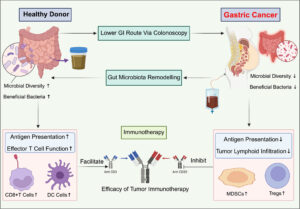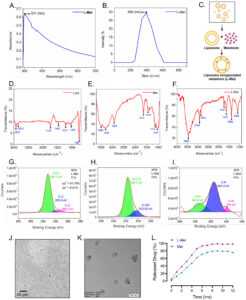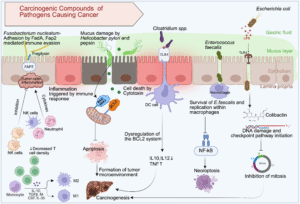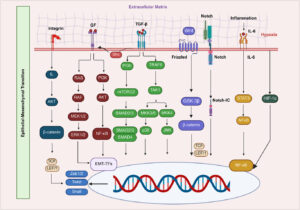The Impact of SARS-CoV-2 on Liver Diseases and Potential Phytochemical Treatments
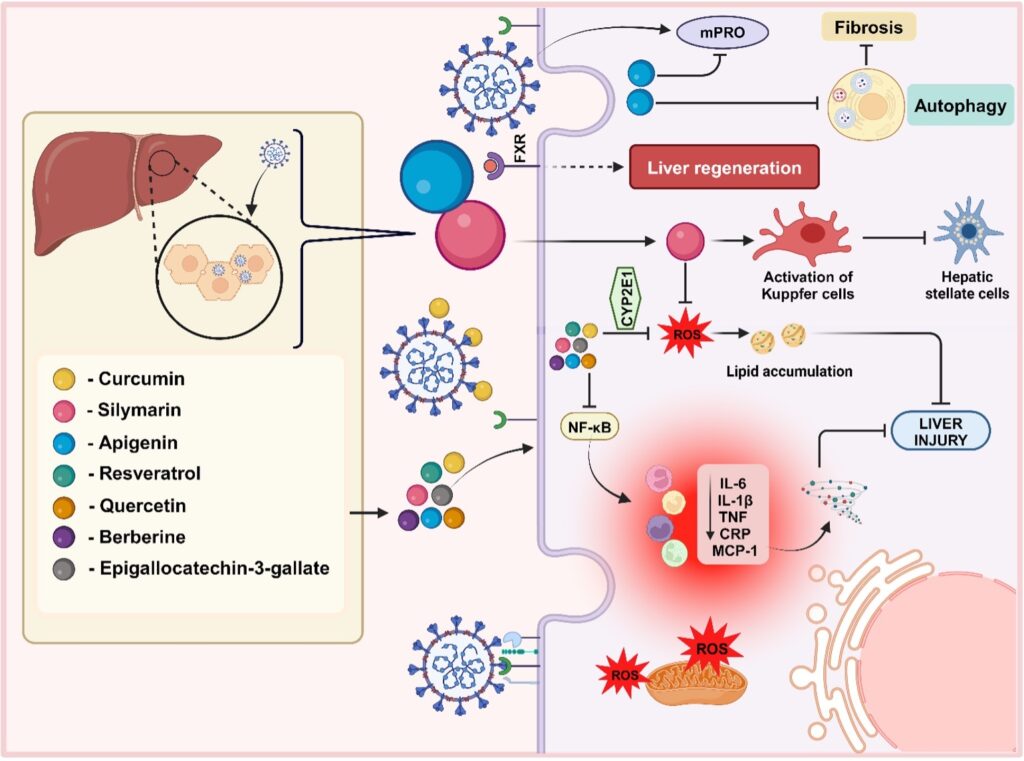
Balaji, Dhanvee 1,#; Balakrishnan, Ranjith 1,#; Srinivasan, Dhasarathdev 1,#; Subbarayan, Rajasekaran 1,5,∗; Shrestha, Rupendra 2,3,∗; Srivastava, Nityanand 4; Chauhan, Ankush 5
- Centre for Advanced Biotherapeutics and Regenerative Medicine, Faculty of Research, Chettinad Hospital and Research Institute, Chettinad Academy of Research and Education, Kelambakkam, India.
- Research and Collaboration, Anka Analytica, Melbourne, Australia.
- External Consultant, Independent Researcher, Massachusetts, United States.
- Department of Cell Biology, Albert Einstein College of Medicine, NY, United States.
- Centre for Herbal Pharmacology and Environmental Sustainability, Faculty of Allied Health Sciences, Chettinad Hospital and Research Institute, Chettinad Academy of Research and Education, Kelambakkam, India.
Publication: Infectious Microbes & Diseases. 2024 Dec;6(4):177–188. doi:10.1097/IM9.0000000000000161
Abstract –The COVID-19 pandemic, caused by the SARS-CoV-2 virus, has brought about numerous challenges. One of these challenges is the impact of SARS-CoV-2 on the liver. Although this virus primarily affects the lungs, it can induce elevated transaminase levels and the development of scar tissue in the liver, exacerbating preexisting liver conditions. Individuals with preexisting conditions, such as nonalcoholic fatty liver disease, alcohol-induced liver disease and hepatocellular carcinoma, face an increased risk of mortality from COVID-19. However, drugs currently used to treat COVID-19 have undesirable side effects, which make them unsuitable for patients with preexisting liver conditions. In this review, we explore the potential of phytochemicals, such as apigenin, berberine, curcumin, epigallocatechin-3-gallate, quercetin, resveratrol and silymarin, for treatment of the liver conditions, including nonalcoholic fatty liver disease, alcohol-induced liver disease and hepatocellular carcinoma. We also discuss significant associations between phytochemicals and COVID-19 by depicting their molecular interactions. Based on the discussed overlapping functions, it is important to assess the therapeutic efficacy of phytochemicals that possess hepatoprotective properties as potential alternative treatments for COVID-19.
Cite: Balaji D, Balakrishnan R, Srinivasan D, Subbarayan R, Shrestha R, Srivastava N, Chauhan A. The Impact of SARS-CoV-2 on Liver Diseases and Potential Phytochemical Treatments. Infect Microbes Dis. 2024 Dec;6(4):p 177-188.

